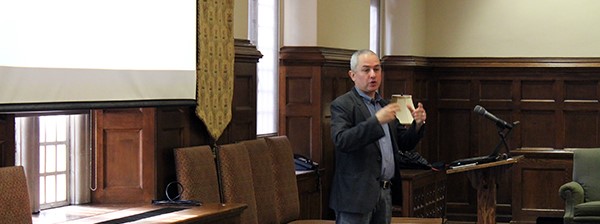
In the late nineteenth century, the economist F. Y. Edgeworth foresaw the development of the hedonometer, a tool that would measure the pleasure a person felt as a result of consuming various goods. The device would allow us to compare pleasure across individuals and, ultimately, allow policy makers to determine who should get what and pay how much. Developing a hedonometer proved more difficult than Edgeworth predicted.
A measure of charisma seems similarly fantastical, but a scholar who recently visited the Jepson School suggested such a measure may be feasible. John Antonakis presented research in which he and his colleagues essentially code speech for signs of charisma — does the speaker use metaphors, ask rhetorical questions, present contrasts? — and assign a value for levels of charisma.
The ultimate goal is to assess the persuasiveness of a leader as well as the value to the group of such persuasiveness. Experimental economists have developed contexts in which one can assess this value. The setup involves a public goods game in which people earn rewards according to the decisions they make. They have two options: to contribute to their own account or to contribute to a shared group account.
This arrangement generates the famous coordination problem, which has been the subject of much study by economists and political scientists. People have the incentive to behave individualistically and then enjoy the shared returns that accrue to the group; yet everyone would be better off if all group members contribute to the public account. We all know the phrase free rider — in this situation, individuals have the incentive to free ride on the group.
The key question for those of us who study leadership is how to avoid this, how to coordinate individual actions to earn the most. Do effective leaders generate more returns for the group, and if so, how?
Not surprisingly, it turns out that one definition of a leader is someone who communicates to individual group members about the value of cooperation. This is how leaders benefit the group as a whole and individuals in it. (See the experiments here and here conducted by my co-authors and me.)
Many research questions remain for the field of leadership studies.
